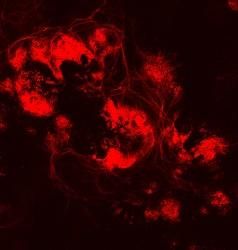EMBO at Basel Life
A new conference on current and emerging life science research
Advertisement
EMBO and Basel Life hosted EMBO at Basel Life conference. A committee of leading scientists had organized this international and broad-scope scientific conference on current and emerging life science research to be held as part of Basel Life.
“Established and young researchers will present and discuss work on all aspects of genome biology, ranging from microbial genomes and genome evolution to transcription, inheritance and clinical approaches,” stated EMBO Director Maria Leptin. Presentations on approaches and techniques, including single molecule imaging and bio-informatics, completed the programme.
The conference brought the best in fundamental research to a wide audience, ranging from leading experts in their fields to students and young researchers at the beginning of their careers. “It aims to foster a fruitful exchange between researchers from academia, clinics, the pharmaceutical and biotech industry, and it will promote excellence in the life sciences,” said Susan Gasser from Friedrich Miescher Institute for Biomedical Research, Basel, and a scientific organizer of the conference.
Nobel laureate Sir Paul Nurse delivered a public lecture on the control of the cell cycle. Jennifer Doudna and Svante Pääbo delivered the keynote lectures. Jennifer Doudna, co-discoverer of the CRISPR-Cas9 technology, was discussing the genome engineering revolution, while Svante Pääbo was talking about illuminating the origins of modern humans through sequencing ancient genomes.
With the Louis-Jeantet Prize lectures, the conference celebrated the achievements of the 2017 prize winners: Neurobiologist Silvia Arber and immunologist Caetano Reis e Sousa were presenting their research on movement-controlling neuronal circuits and the mechanisms for sensing pathogen invasion and tissue damage, respectively.
During two science policy sessions the speakers had been discussing open science and open data: What is the role of publishers in open science? What do outbreaks and epidemics tell us about the need for making data openly available? And what are the issues and ethics that need to be considered when potentially sharing personally identifiable data?























































